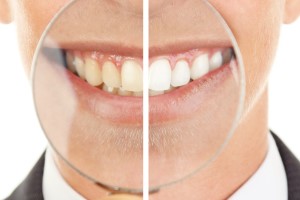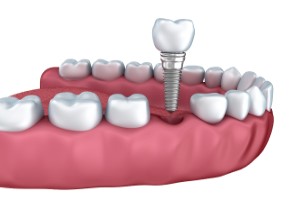 A missing tooth does not have to be a permanent condition. One option for treatment is getting a partial denture for one missing tooth. Although growing in popularity, many patients are still unaware of the specifics of this procedure. Here are some questions people ask before undergoing this type of treatment.
A missing tooth does not have to be a permanent condition. One option for treatment is getting a partial denture for one missing tooth. Although growing in popularity, many patients are still unaware of the specifics of this procedure. Here are some questions people ask before undergoing this type of treatment.
Frequently asked questions about partial dentures
Although each patient is different, these answers can provide a general idea of what to expect with this procedure.
How many visits will it take?
Even replacing a single tooth typically requires a minimum of two visits. One or two weeks is also generally needed between these appointments with the dentist.
Will it alter the appearance of the smile?
Partial dentures typically have a small clasp that may sometimes be visible depending on the location in the mouth and the size of the smile. Additionally, the bone in the area where the tooth is missing can tend to deteriorate even with a partial denture in place. Bone loss can affect the look of a smile in some cases.
Will it affect the ability to talk or chew?
There is generally an adjustment period after getting a partial denture for one missing tooth, and it may feel different when talking or chewing. However, many patients experience more difficulty when they chew or talk with a missing tooth than with a partial denture.
Is it expensive?
The cost can vary, but according to the American Dental Association, partial dentures are actually the least expensive treatment option for missing teeth.
Does it require grinding down the adjacent teeth?
Unlike a fixed bridge, a partial denture does not require the adjacent teeth to be ground down. In fact, a denture like this typically has little to no impact on the surrounding teeth.
What is the denture made of?
The tooth portion of a denture is commonly made from a plastic called acrylic resin. The tooth is fixed to a frame of either metal or thermoplastic material that hooks onto the remaining natural teeth.
Is there any preparation involved?
To prevent the denture from pushing down into the gums, a dental professional typically puts small grooves and dimples on the surface of some of the natural teeth. This allows the clasps to sit on top of the teeth.
How long will it last?
Depending on the amount of wear and tear the denture undergoes, as well as the level of care and maintenance involved, a partial denture can last anywhere from six months to 10 years. The location of the denture can also affect its lifespan since patients tend to grind down back teeth with daily use more quickly than front teeth.
Conclusion
Asking the right questions before getting a partial denture for one missing tooth can help both the patient and dentist determine the correct treatment option in a particular situation. Because each patient is unique, it is critical to ask questions regarding personal preferences or conditions prior to undergoing this procedure.
Request an appointment or call 82nd St. Dental at 718-476-5555 for an appointment in our Jackson Heights office.
Recent Posts
Learning to live with a partial denture for one missing tooth takes time. It will take several weeks for you to get used to having a foreign object in your mouth, and it may be difficult to chew or speak clearly for the first few weeks after getting dentures. There are several things you can…
For anyone who has a gap in their smile due to a missing tooth, a partial denture for one missing tooth can restore confidence. Dentures are commonly placed for aesthetic purposes, but there are two other reasons you should not hesitate to replace a missing natural tooth with a partial denture.You can get partial dentures…
A missing tooth can increase the risk of developing gum disease and cause teeth around a gap to become misaligned. A partial denture for one missing tooth may be recommended as a fast and cost-effective solution.Most dentists usually recommend two options for a single missing tooth. The first option consists of a false acrylic or…






